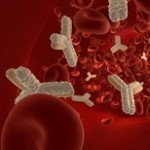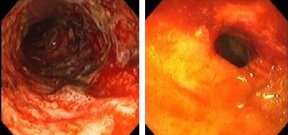 Our immune system is an intricate system of defenses that distinguishes between foreign substances within the body from healthy cells, when properly functioning. Nearly 90% of people see their immune system as their body’s most specialized defense mechanism in preventing illness, making the idea of “immune boosting” an appealing concept. It sounds simple and desirable. Can you boost immunity? So what Can You Do? It’s a completely invalid analogy.
Our immune system is an intricate system of defenses that distinguishes between foreign substances within the body from healthy cells, when properly functioning. Nearly 90% of people see their immune system as their body’s most specialized defense mechanism in preventing illness, making the idea of “immune boosting” an appealing concept. It sounds simple and desirable. Can you boost immunity? So what Can You Do? It’s a completely invalid analogy.
Attempting to boost the cells of the immune system is especially complicated because there are so many different kinds of cells in the immune system that respond to so many different microbes in so many ways. Which cells should you boost, and to what number? So far, scientists do not know the answer. …
There is a connection of immune function with just about all nervous system disorders. The immune system is important not just for the nervous system, but for basically any disease in the body. Many diseases are due to chronic inflammation or the fact that the immune system attacks our own tissue. Any disease that results from such an aberrant immune response is termed an autoimmune disease.
The main component in nervous system disease is really “autoimmunity”. Such neuropathies as chronic inflammatory demyelinating polyneuropathy (CIDP), Guillain-Barré syndrome (GBS), and multifocal motor neuropathy (MMN) are caused by autoimmune mechanisms. Neurological autoimmunity can target virtually any structure within the central or peripheral nervous system and often in a highly specific way, targeting a very specific cell population.
CIDP is the most common chronic inflammatory disease …
The cause of chronic inflammatory bowel disease (ulcerative colitis and Crohn’s disease) is unknown. However, exposure of the bowel immune system to infections is believed to play a role in the development of these chronic diseases that are very common among young people.
Some people with inflammatory bowel disease (IBD) may experience various extra-intestinal symptoms along with their gastrointestinal (GI) symptoms. These can include skin irritation (erythema nodosum), eye problems (episcleritis), and joint pains (arthritis). Some people with IBD also develop mouth sores (oral aphthous ulcers).
Behçet’s syndrome, an inflammatory disease affecting many organs, including the eyes, genitals, skin, joints, blood vessels, brain, and gastrointestinal, can cause recurring, painful mouth sores. Although the gastrointestinal and systemic features of Behcet’s syndrome and IBD overlap to a considerable extent, they are generally viewed as two …
Sulfur, after calcium and phosphorus, is the most abundant mineral element found in our body. It is available to us in our diets, derived almost exclusively from proteins, and yet only 2 of the 20 amino acids normally present in proteins contains sulfur. The sulfur-containing amino acids (methionine and cysteine) are found principally in red meat and dairy products. Proteins contain between 3 and 6% of sulfur amino acids. A very small percentage of sulfur comes in the form of inorganic sulfates and other forms of organic sulfur present in foods such as garlic, onion, broccoli, etc.
The metabolism of both sulfur containing amino acids is closely related. Methionine is one of the essential amino acids with many key roles in mammalian metabolism. It is a precursor for cysteine formation in …
Millions of people worldwide are affected by Ulcerative Colitis (UC) and Crohn’s Disease (CD), the two most severe digestive afflictions. Both diseases are classified under the medical rubric of IBD (Inflammatory Bowel Disease). Inflammatory mediators have been identified in IBD, and considerable evidence suggests that these mediators play an important role in the pathologic and clinical characteristics of these disorders. The result is an immune response that destroys normal body tissues. However, there is no scientific proof that IBD is an autoimmune disease. It is simply an assumption. The cause of IBD remains poorly understood.
 UC and CD share many extraintestinal manifestations, although some of these tend to occur more commonly with either condition. UC and CD cause life …
UC and CD share many extraintestinal manifestations, although some of these tend to occur more commonly with either condition. UC and CD cause life …